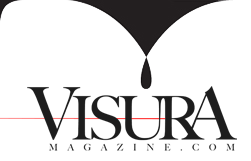
The story of Afghanistan is like Job’s, except God has not yet appeared in the whirlwind to explain the suffering and set things right. This is a land where war has put time out of joint, where people live in ruins resembling archaeological sites, using the tools of centuries gone by. The tools—hand-hewn wooden furrows plowing the earth, hand-shaped clay ovens baking bread—create the beautiful necessities that make life bearable.—Tim Weiner
The pictures of the barber and vendors at the bazaar along the edge of the Nasir Bagh refugee camp in Peshawar, are a reflection of the effects of jet lag, culture shock and my first impressions of the region. It was one of the most exhilarating and demanding few hours I have spent as a photographer. I had engaged the owner of the camera to assist but by the third sitting acquired a dozen volunteer helpers. I have spent most of my career hiding behind my camera being as discreet as I can be. Here I led a gaggle of assistants, making grand gestures as we set up each scene.
This simple camera captured the fetid, dusty air of the bazaar and the culture in a way, I felt, that another camera could not. After spending several weeks in Pakistan, and several false starts at the gate at the end of the Kyber Pass, we were finally able to cross into Afghanistan. I arrived in Jalalabad on the evening of November 17, 2001, the day Osama Bin Laden fled from Jalalabad to the Tora Bora mountains. I started looking for another camera to work with. A week later 15-year-old, Materullah Farmhada, allowed me to rent his camera.
The Taliban had banned kite flying, music and photography (except for government ID photos) and these cameras were largely out-of-use. The techniques are the most basic in photography—expose light to light-sensitive material. The camera had no shutter so light sensitive paper is exposed, not film, by removing the lens cap and counting between two and six seconds. I only made one plate at each sitting, processed the negative by agitating it in a tray of developer and fixer inside the camera and accepted the final results, flaws and all. I strongly felt that the calotype was a more accurate way to record this particular period in Afghanistan as they shook themselves from their stunned silence and ceased their march back into the past.
One day, I met a man named Masood. He was with a handful of Afghanis who gathered in a hotel that housed western journalists, hoping to be hired as interpreters. Masood was quietly rendering details about the US Constitution and the Louisiana Purchase. He had been a school teacher in Kabul struggling to provide for his four unmarried daughters who he had been trying to raise and protect in the shadow of an extreme regime. I was not able to hire him but introduced him to reporters at other western news organizations.
The last time I saw him was at Tora Bora as US planes, special forces and the Eastern Shuria pounded the hills breaking through the front lines toward the underground tunnel systems that housed Osama Bin Laden and the fleeing Taliban. Masood shook my hand and thanked me profusely for the little I had done for him. A few days pay meant a small relief for his family. He expressed his hope that his country would soon be rid of al-Qaeda and there would finally be an end to decades of foreign aggression and civil war.
I left Afghanistan several weeks later. Corruption and greed were rooting itself in Jalalabad. The people who bravely stepped up to our camera and our questions would soon quietly try to disappear again as warlords and guerrillas stepped in to grab a share of the spoils for themselves.
www.crowleygraphs.com





